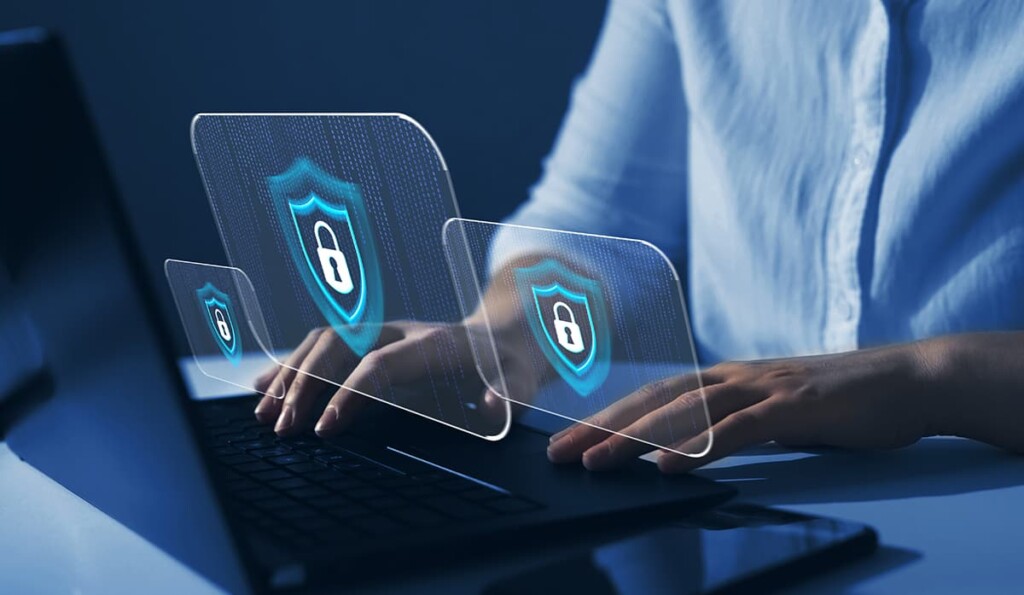Police Chiefs & Sheriffs: Use GoFundMe To Raise Money To Fight Cybercrime, Scams, And Fraud – And Obtain Tools & Training
By Tim McGuinness, Ph.D. – Anthropologist, Scientist, Director of the Society of Citizens Against Relationship Scams Inc.
The Fight Against Cybercrime Is As Much A Local Fight As a National Or International Fight
Local police & sheriff departments are the first responders for their citizens, but in the war against cybercrime, most of them have thrown up their hands and told their citizens there is nothing they can do!
But there is very much they can do, especially when it comes to tracing and recovering the money!
However, local police need financial support to get the tools, training, and even personnel needed to do the job well.
Local Police Combatting Cybercrime
It is crucial for local police to actively combat cybercrime, scams, and fraud while providing support to victims through investigation and money recovery for several reasons:
- Protection of the Community: Cybercrime, scams, and fraud have a direct impact on the community. Almost every one of their local residents can become a victim, and many already have become one. By prioritizing these investigations, local police can better safeguard individuals and businesses from financial losses, identity theft, and other detrimental consequences. Their efforts contribute to maintaining trust, security, and overall well-being within the community. They are the first responders and can help victims better understand options, gain support, and be the tip of the spear in recovering their money.
- Prevention and Deterrence: By actively investigating cybercrime and fraud cases, local police send a strong message that these activities will not be tolerated. Taking decisive action against offenders helps deter potential criminals, discouraging them from engaging in fraudulent activities. The fear of facing legal consequences acts as a deterrent, especially for scammers and cybercriminals acting locally, thereby protecting potential victims from falling prey to scams. Local con men/women are turning to cybercrime in vast numbers because it is easy and they think safe. This needs to be stopped, and this can only happen at the local level. In addition, local police have the authority role to help educate their community to avoid these crimes.
- Collaboration with National and International Agencies: Cybercrime knows no boundaries, and often these criminal activities transcend local jurisdictions, while still having a local nexus with money mules. By engaging in investigations, local police can collaborate with national and international law enforcement agencies, sharing intelligence and resources. This collaboration strengthens the collective efforts to combat cybercrime, enhances investigative capabilities, and increases the chances of apprehending criminals operating across borders. This has been almost completely absent in the last two decades as these crimes have exploded worldwide.
- Support for Victims: Victims of cybercrime, scams, and fraud often face significant financial and emotional distress. Local police involvement provides front-line support to victims through the way local police take these crimes seriously and the investigation process, offering reassurance, guidance, and a sense of justice. Additionally, by actively working on money recovery, police contribute to the restoration of victims’ financial well-being, minimizing the long-term impact of the crime. Local victims need to feel that they can turn to their local police, and when the do it increases the reporting levels of these crimes from the current less than 5% to where it needs to be!
- Enhanced Public Trust: Proactive engagement by local police in combating cybercrime and fraud fosters public trust and confidence in law enforcement agencies. It demonstrates their commitment to protecting the community’s interests and addressing emerging threats effectively. This trust is essential for encouraging victims to come forward, report crimes, and collaborate with the police during investigations. This is something that has been almost completely lacking and many jurisdictions be telling victims that there is nothing that they can do.
- Knowledge and Expertise Development: Engaging in cybercrime investigations provides local police with valuable opportunities to develop specialized knowledge and expertise in this rapidly evolving field. This experience strengthens their investigative skills, equips them with the necessary tools to tackle future cyber threats, and enables them to better serve the community’s needs. In most places around the world, cybercrime, scams, and fraud are now almost half of all crimes and affect almost every resident in one way or another. There is very much that local police can do, especially when there are money mules and accessories involved, and even more so when they can play a role in recovering money using the Interpol model to recover bank wire transfers (automatic push payments) or tracing and recovering cryptocurrency.
By prioritizing the fight against cybercrime, scams, and fraud, local police play a crucial role in protecting the community, preventing future crimes, supporting victims, fostering collaboration, and enhancing public trust. Their dedication and proactive approach contribute to a safer and more secure environment for individuals, businesses, and society as a whole.
Raising Money For Local Police To Fight Cybercrime, Scams, And Fraud
Local police can raise money to obtain additional tools & technology, training, and personnel to help fight cybercrimes, scams, and fraud in a number of ways, including:
- Grants: There are a number of government agencies and foundations that offer grants to law enforcement agencies to help them with their cybercrime prevention and response efforts. For example, the Department of Justice’s Office of Justice Programs offers the COPS Technology Program, which provides grants to law enforcement agencies to help them purchase equipment and technology to combat cybercrime.
- Fundraising: Local police departments can also raise money through fundraising events, such as bake sales, car washes, and 5K runs. These events can be a great way to raise awareness of cybercrime and the importance of funding law enforcement efforts to combat it. Just as important is that this tells your communities that you take these crimes seriously and are moving to take a much more active role in combatting them.
- Corporate sponsorships: Local police departments can also partner with businesses to raise money for their cybercrime prevention and response efforts. For example, a local bank might sponsor a cybercrime awareness campaign or donate money to help the police department purchase new equipment. With proper staffing, training, and tools local police can play a real role in helping local businesses understand the threats and risks associated with cybercrime – something that almost none of them are doing right now.
- Individual donations: Local police departments can also accept individual donations from the public. These donations can be used to purchase equipment, fund training, or hire new personnel to help fight cybercrime.
- Crowdfunding: Crowdfunding platforms like GoFundMe and Kickstarter allow people to donate money to specific causes. This can be a great way to raise money for cybercrime prevention and response efforts, especially if the department has a specific goal in mind, such as purchasing new equipment or hiring a new cybercrime investigator. This can be done through local associations like the PBA, Police Officer charities, membership organizations like local Rotary Clubs, etc.
By combining crowdfunding platforms with community partnerships, government grants, fundraising events, and other fundraising avenues, local police departments can increase their chances of acquiring the necessary resources to combat cybercrimes, scams, and fraud effectively. Engaging the community and fostering collaboration is key to generating support and ensuring the success of these fundraising endeavors.
In addition to these methods, local police departments can also work with their local governments to increase funding for cybercrime prevention and response efforts, after all the local government is also at risk and needs local police leadership to help them prevent, mitigate, and recover from cybercrime, scams, and fraud just like the general public. By raising awareness of the issue and working with partners in the community, local police departments can help to make their communities safer from cybercrime.
The Ideal Model
At a minimum, local police should aim to make their departments the essential resource in supporting local victims: supporting victims and referring them to appropriate help such as SCARS, educating them about financial support that may be available at the county and state level, investigating and recovering their money. But given that in most communities these crimes are or are approaching a majority of all crime, the local police need to transform into the local cybercrime experts.
Local police and sheriff’s departments can develop effective resources to combat cybercrime, scams, and fraud at the local level by:
- Partnering with the community: One of the most important things that local police and sheriff’s departments can do to combat cybercrime is to partner with the local community, including the local government. This means working with businesses, schools, and other organizations to raise awareness of cybercrime and its risks. It also means providing resources to help people protect themselves and recover from cybercrime.
- Investing in training: Local police and sheriff’s departments need to invest in training for their officers so that they can be effective in investigating and responding to cybercrime. This training should cover topics such as how to identify cybercrime, how to collect evidence, how to trace and recover victims’ money, and how to work with other law enforcement agencies nationally and even internationally – including Interpol.
- Using technology: Local police and sheriff’s departments need to use technology to their advantage in the fight against cybercrime. This means investing in tools and software that can help them investigate cybercrime and track down criminals. It also means using social media and other online platforms to communicate with the public about cybercrime risks and prevention tips on a constant basis.
- Staying up-to-date: Cybercrime is constantly evolving, so it’s important for local police and sheriff’s departments to stay up-to-date on the latest trends. This means reading industry publications, attending conferences, and networking with other law enforcement agencies.
- Collaborate with Cybercrime Victim Assistance & Prevention NGOs: By working with large local NGOs, such as SCARS, local police has access to substantial knowledge about how to effectively help victims, and how to recognize emerging threats as they are developing.
By following these steps, local police and sheriff’s departments can develop effective resources to combat cybercrime, scams, and fraud at the local level.
Here are some additional tips for local police and sheriff’s departments that are looking to develop effective resources to combat cybercrime:
- Create a cybercrime task force: A cybercrime task force can bring together law enforcement officers, prosecutors, and other experts to share information and resources. Be sure to include local cybersecurity professionals and victims’ advocates. This can help to ensure that the community has a coordinated response to cybercrime.
- Develop a cybercrime prevention plan: A cybercrime prevention plan can help to educate the public about cybercrime risks and prevention tips. This can help to reduce the number of people who fall victim to cybercrime. Make sure that it includes the local schools, both the administration and the students!
- Establish a Cybercrime Reporting Center: A cybercrime reporting center can provide a central location for people to report cybercrime incidents. This can help law enforcement to track cybercrime trends and identify criminals. But equally important is that it will lower that emotional impact on the local victims – most victims feel significant shame, guilt, and fear of judgment. Having a phone reporting hotline and a web reporting form it can significantly increase local cybercrime, scams, and fraud reporting.
- Work with businesses: Businesses are often targeted by cybercriminals. By working with businesses, law enforcement can help to protect businesses from cybercrime and educate employees about cybercrime risks.
By following these tips, local police and sheriff’s departments can better develop effective resources to combat cybercrime, scams, and fraud at the local level.
Additional Tips For Local Police Chiefs & Sheriffs
Here are some additional tips for local police departments that are looking to raise money to fight cybercrime:
- Be clear about your goals: Before you start fundraising, it’s important to be clear about what you’re raising money for. Are you looking to purchase new equipment? Fund training? Hire new personnel? Once you know what you’re raising money for, you can develop a fundraising plan that will help you reach your goals.
- Target your audience: When you’re fundraising, it’s important to target your audience. Who are the people who are most likely to donate to your cause? Are they businesses, individuals, or both? Once you know who your audience is, you can tailor your fundraising appeals to them.
- Use social media: Social media is a great way to raise awareness of your cause and generate donations. Share information about cybercrime, your fundraising efforts, and how people can donate.
- Partner with local businesses: Local businesses can be a great source of support for your fundraising efforts. They may be willing to donate money, sponsor an event, or provide in-kind donations.
- Be creative: There are endless ways to raise money for cybercrime prevention and response efforts. Get creative and come up with fundraising ideas that will resonate with your audience.
More Information
- Bureau of Justice Assistance (ojp.gov)
- Department of Justice | Grants | United States Department of Justice
- U.S. Department of Justice (DOJ) | GRANTS.GOV
- Where to Find Funding for Equipment, Training, Hiring, and Programs (usdoj.gov)
- Police Department Grant & Fundraising Options | PlanIt Police
- Local Community Grants (walmart.org)
- SCARS Corporate Information AgainstScams.org
- RomanceScamsNOW.com an Encyclopedia of Cybercrime, Scams, and Fraud
-/ 30 /-
What do you think about this?
Please share your thoughts in a comment below!
More ScamsNOW.com Articles
-/ 30 /-
What do you think about this?
Please share your thoughts in a comment above!
SCARS LINKS: AgainstScams.org RomanceScamsNOW.com ContraEstafas.org ScammerPhotos.com Anyscam.com ScamsNOW.com
reporting.AgainstScams.org support.AgainstScams.org membership.AgainstScams.org donate.AgainstScams.org shop.AgainstScams.org
youtube.AgainstScams.org linkedin.AgainstScams.org facebook.AgainstScams.org
ARTICLE RATING
TABLE OF CONTENTS
- The Fight Against Cybercrime Is As Much A Local Fight As a National Or International Fight
- Local Police Combatting Cybercrime
- Raising Money For Local Police To Fight Cybercrime, Scams, And Fraud
- The Ideal Model
- Additional Tips For Local Police Chiefs & Sheriffs
- More Information
- Important Information for New Scam Victims
- Statement About Victim Blaming
- SCARS INSTITUTE RESOURCES:
- Psychology Disclaimer:
- More ScamsNOW.com Articles
- A Question of Trust
- SCARS Institute™ ScamsNOW Magazine
Society of Citizens Against Relationship Scams Inc. [SCARS]
META
CATEGORIES
MOST POPULAR COMMENTED ARTICLES
POPULAR ARTICLES
U.S. & Canada Suicide Lifeline 988
![NavyLogo@4x-81[1]](https://scamsnow.com/wp-content/uploads/2025/04/NavyLogo@4x-811.png)
WHAT PEOPLE ARE TALKING ABOUT
LATEST SITE COMMENTS
See Comments for this Article at the Bottom of the Page
on Vulnerability to Scams Caused by Past Relationships is Like a River Running through Your Life Cutting Channels – 2025: “My big take away from this article is that there are many layers to my vulnerability. Yes, losing my Mom…” May 8, 11:43
on Hate for Scammers and Criminals Feels So Good But is So Bad for Scam Victims – 2025: “As stated here it feels like it should be justified – to hate them. I never did feel that way,…” May 6, 17:32
on Scam Victims Suppressing Trauma Or Avoiding Recovery And Healing 2024: “This is a great article that will, hopefully, help when I am avoiding facing my emotions/triggers. Recognizing the signs and…” May 6, 16:47
on SCARS 5 Coping Techniques For Traumatized Scam Victims – 2023: “One of the best ways of coping for me has been to reconnect with my friends. I self-isolated for months…” May 6, 16:07
on Trauma Recollection/Traumatic Flashbacks And Scam Victim PTSD – Recovery Psychology – 2023: “I don’t feel like my trauma can be described as PTSD. The affects after the scam ended were severe anxiety,…” May 6, 15:55
on Selective Amnesia and Scam Victim Psychological Trauma 2023: “This was a very interesting article to me. I have not experienced selective amnesia in relation to the scam. However,…” May 6, 15:39
on Psychological Triggers/Emotional Triggers – What They Are And How They Work – 2023/2024: “Not long after my scam ended, I needed to go to the grocery store. It never crossed my mind that…” May 6, 14:48
on Learning And The Challenges That A Scam Victim Faces From Trauma And Related Cognitive Effects – 2024: “My cognitive impairment was bad right after my scam. However, I have now noticed that it was especially bad during…” May 6, 14:23
on Hate for Scammers and Criminals Feels So Good But is So Bad for Scam Victims – 2025: “This is all true and valid. I had to forgive myself first for trusting my abuser because he hurt my…” May 6, 10:08
on Nirvana and the Path to Letting Go of Suffering – 2025: “En mi experiencia podría describir el nirvana en mi recuperación como ese estado de paz profunda y liberación emocional que…” May 5, 18:58
on The Prodigal Son or Daughter – Returning ‘Home’ After the Scam – 2025: “It’s true that the judgment of others does not define my path but if after “coming home” those closest to…” May 5, 13:21
on Beginning Again and Scam Victim Recovery -2025: “Taking action is the first step to recovery and I am doing that and becoming a newer stronger version of…” May 5, 09:53
on Beginning Again and Scam Victim Recovery -2025: “In order not to let this deception define me, since its discovery I have been ACTING.” May 5, 07:22
on The Butterfly Effect And Scam Victims – 2024: “Very good and interesting analogy to the Butterfly Effect and how it pertains to scams. In my crime I can…” May 4, 14:51
on Faith And Why It Matters In Scam Victim Recovery – 2024: “This is a good article giving examples of the difference between faith in oneself and one’s core values – to…” May 4, 13:37
on Reclaiming Your Worth: A Scam Survivor’s Guide to Navigating Your Worthiness After a Scam – 2023: “As an individual I process my emotions slowly whether it is shock, trauma, anger, disbelief. In the cycle of recovery…” May 4, 12:54
on The Stain that Never Goes Away After a Romance Scam for Scam Victims – 2025: “Thank you for sharing this important step on recovery” May 4, 12:09
on Metanoia – The Transformation for Traumatized Scam Victims – 2025: “Excelente articulo!!!… Después de superar la estafa podría describir la metanoia en mi propia experiancia como un renacimiento interior, una…” May 4, 00:24
on Philosophy of Life Planning – From Chaos to Order and the Scam Victim Recovery Path Forward – 2025: “Seeking justice is, unfortunately, not justice. Anger and revenge is not justice either. Recovery is justice. The only justice for…” May 3, 21:16
Important Information for New Scam Victims
Please visit www.ScamVictimsSupport.org – a SCARS Website for New Scam Victims & Sextortion Victims
SCARS Institute now offers a free recovery program at www.SCARSeducation.org
Please visit www.ScamPsychology.org – to more fully understand the psychological concepts involved in scams and scam victim recovery
If you are looking for local trauma counselors, please visit counseling.AgainstScams.org
If you need to speak with someone now, you can dial 988 or find phone numbers for crisis hotlines all around the world here: www.opencounseling.com/suicide-hotlines
Statement About Victim Blaming
Some of our articles discuss various aspects of victims. This is both about better understanding victims (the science of victimology) and their behaviors and psychology. This helps us to educate victims/survivors about why these crimes happened and not to blame themselves, better develop recovery programs, and help victims avoid scams in the future. At times, this may sound like blaming the victim, but it does not blame scam victims; we are simply explaining the hows and whys of the experience victims have.
These articles, about the Psychology of Scams or Victim Psychology – meaning that all humans have psychological or cognitive characteristics in common that can either be exploited or work against us – help us all to understand the unique challenges victims face before, during, and after scams, fraud, or cybercrimes. These sometimes talk about some of the vulnerabilities the scammers exploit. Victims rarely have control of them or are even aware of them, until something like a scam happens, and then they can learn how their mind works and how to overcome these mechanisms.
Articles like these help victims and others understand these processes and how to help prevent them from being exploited again or to help them recover more easily by understanding their post-scam behaviors. Learn more about the Psychology of Scams at www.ScamPsychology.org
SCARS INSTITUTE RESOURCES:
IF YOU HAVE BEEN VICTIMIZED BY A SCAM OR CYBERCRIME
♦ If you are a victim of scams, go to www.ScamVictimsSupport.org for real knowledge and help
♦ Enroll in SCARS Scam Survivor’s School now at www.SCARSeducation.org
♦ To report criminals, visit https://reporting.AgainstScams.org – we will NEVER give your data to money recovery companies like some do!
♦ Sign up for our free support & recovery help by https://support.AgainstScams.org
♦ Join our WhatsApp Chat Group at: https://chat.whatsapp.com/BPDSYlkdHBbDBg8gfTGb02
♦ Follow us on X: https://x.com/RomanceScamsNow
♦ Follow us and find our podcasts, webinars, and helpful videos on YouTube: https://www.youtube.com/@RomancescamsNowcom
♦ SCARS Institute Songs for Victim-Survivors: https://www.youtube.com/playlist…
♦ See SCARS Institute Scam Victim Self-Help Books at https://shop.AgainstScams.org
♦ Learn about the Psychology of Scams at www.ScamPsychology.org
♦ Dig deeper into the reality of scams, fraud, and cybercrime at www.ScamsNOW.com and www.RomanceScamsNOW.com
♦ Scam Survivor’s Stories: www.ScamSurvivorStories.org
♦ For Scam Victim Advocates visit www.ScamVictimsAdvocates.org
♦ See more scammer photos on www.ScammerPhotos.com
You can also find the SCARS Institute on Facebook, Instagram, X, LinkedIn, and TruthSocial
Psychology Disclaimer:
All articles about psychology and the human brain on this website are for information & education only
The information provided in this and other SCARS articles are intended for educational and self-help purposes only and should not be construed as a substitute for professional therapy or counseling.
Note about Mindfulness: Mindfulness practices have the potential to create psychological distress for some individuals. Please consult a mental health professional or experienced meditation instructor for guidance should you encounter difficulties.
While any self-help techniques outlined herein may be beneficial for scam victims seeking to recover from their experience and move towards recovery, it is important to consult with a qualified mental health professional before initiating any course of action. Each individual’s experience and needs are unique, and what works for one person may not be suitable for another.
Additionally, any approach may not be appropriate for individuals with certain pre-existing mental health conditions or trauma histories. It is advisable to seek guidance from a licensed therapist or counselor who can provide personalized support, guidance, and treatment tailored to your specific needs.
If you are experiencing significant distress or emotional difficulties related to a scam or other traumatic event, please consult your doctor or mental health provider for appropriate care and support.
Also read our SCARS Institute Statement about Professional Care for Scam Victims – click here
If you are in crisis, feeling desperate, or in despair, please call 988 or your local crisis hotline.
More ScamsNOW.com Articles
A Question of Trust
At the SCARS Institute, we invite you to do your own research on the topics we speak about and publish. Our team investigates the subject being discussed, especially when it comes to understanding the scam victims-survivors’ experience. You can do Google searches, but in many cases, you will have to wade through scientific papers and studies. However, remember that biases and perspectives matter and influence the outcome. Regardless, we encourage you to explore these topics as thoroughly as you can for your own awareness.















![scars-institute[1]](https://scamsnow.com/wp-content/uploads/2025/04/scars-institute1.png)
![niprc1.png1_-150×1501-1[1]](https://scamsnow.com/wp-content/uploads/2025/04/niprc1.png1_-150x1501-11.webp)
